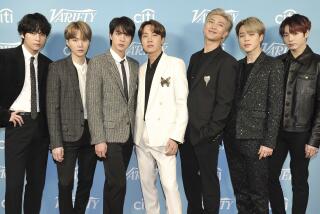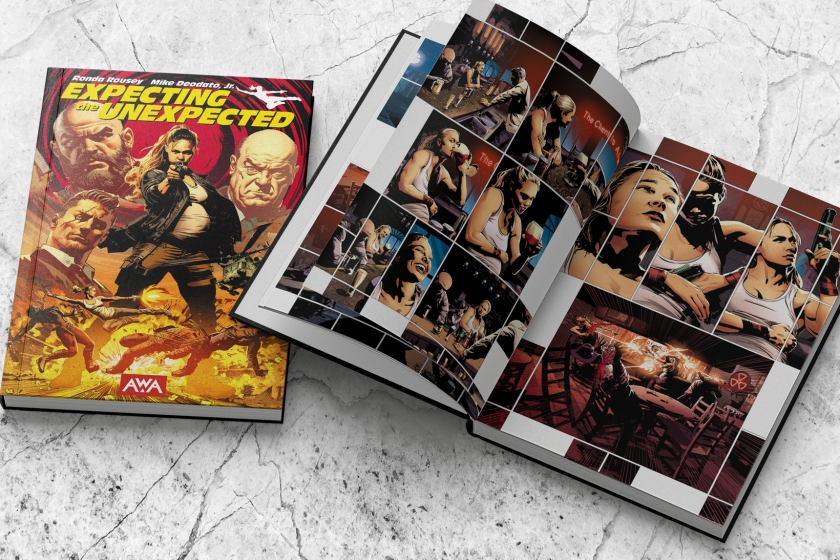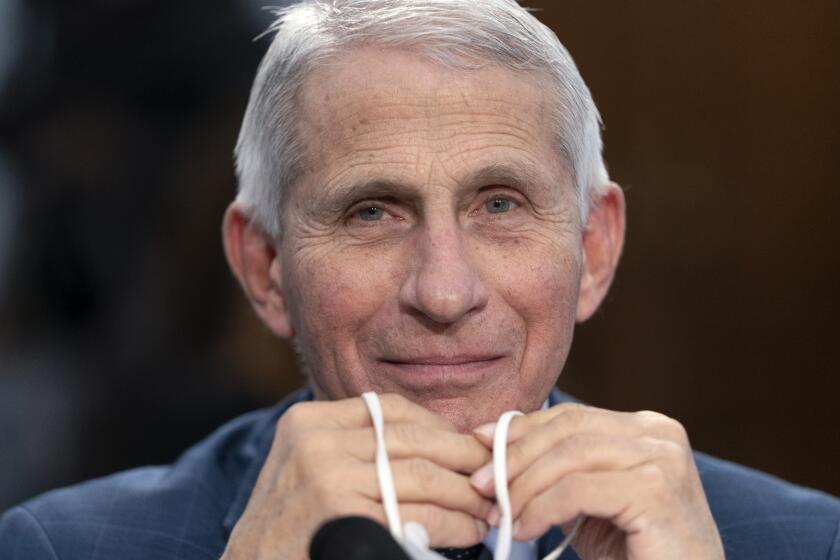Cos and Effect
Seven-year-old Ryan Leong of nearby Nashua, N.H., was hurt and confused when kids at school this fall told him he looked “different” and began making fun of him.
His father well understood that “at this age” kids can be cruel. But Dr. Patrick Leong, who was born in China, said that for Ryan, “This was completely new. He doesn’t see color.”
Then Ryan brought home a new book from an after-school reading program. The Leong family sat down to read “The Meanest Thing to Say.” Never mind that the author was one of the most famous men in America.
“From his aspect, he doesn’t know who Bill Cosby is,” said Dr. Leong, an emergency room physician. What mattered to Ryan and his parents was the book’s message:
“That sometimes you meet somebody who can be really, really mean,” Ryan said. “But you don’t have to be mean yourself. And in the end, you might even be friends.”
This description made Cosby, in his signature beret and a mullberry-colored sweater so well-worn it stretched the term “grunge,” smile warmly. Just before a recent stage performance here, he had gathered a small group of local schoolchildren and their parents to talk about his first foray into children’s literature. Ryan’s assessment, it was clear, was exactly what Cosby was hoping for when he wrote the three “Little Bill” books that have just been published by Scholastic Books.
Out of earshot of his young literary critics, Cosby said, “These books are aimed at asking kids to think. These books are asking kids to respect their own thoughts, to respect their own minds--and to give themselves very positive thoughts, to not be afraid to be themselves. Because therein lies the best entertainment that one could have.”
But Cosby has always been interested in more than entertainment. Talking about his new books, he expresses a new impatience, a new determination to make government--and society in general--more responsive to children. Solutions to many social problems exist, Cosby argues: “We are equipped to take care of many things, I mean in terms of money. Yet we shut many of these programs down. And then I look at corporations, education, government, religion--and, I think, ‘Where is the pressure coming to make people do things correctly?’ ”
The small, paperback volumes use humor and fine storytelling to address such topics as dealing with bullies, learning to appreciate differences and discovering that material objects are not always the be-all and end-all in a child’s life. A “Dear Parent” letter from Cosby’s longtime associate Alvin Poussaint, the Harvard Medical School child psychiatrist who reviews every script for Cosby’s television shows, accompanies each title (“The Meanest Thing to Say,” “The Best Way to Play” and “The Treasure Hunt”). Vibrant illustrations by Los Angeles artist Varnette P. Honeywood, an oil painter and collage specialist, make Cosby’s stories leap off their pages.
Officially, the books are aimed at beginning readers, ages 6 to 10. But so universal are the themes--and so endearing, apparently, is the central character of Little Bill--that on Monday Oprah Winfrey announced she had chosen Cosby’s series as her book club selection for December. By week’s end, orders for the three books numbered close to 2 million. Nickelodeon is already planning to produce three “Little Bill” specials, and a five-day-a-week series is under discussion.
In part, the groundswell reflects Cosby’s extraordinary brand name. His longtime tenure as the paterfamilias of “The Cosby Show,” along with his current CBS comedy, “Cosby,” among other television roles, has made him a familiar presence. His earlier best-selling books--among them, “Fatherhood” (Doubleday, 1986)--secured his reputation as an author. In recent years, moreover, the reading public has grown accustomed to celebrities crossing over into the children’s book market.
Cosby began focusing on the children’s books early in 1996. One of the first people he consulted was his son Ennis, a graduate student in education at Columbia University with a special interest in children’s reading difficulties. Ennis’ own childhood was marked by a struggle with learning differences--Cosby is insistent in his opposition to the phrase “learning disabilities”--and his father wanted his advice. As is often the case where learning differences are concerned, Ennis’ condition was misunderstood throughout much of his childhood. School was an ongoing trial. And while the Cosby family knew there was a problem, identifying it proved difficult.
“People don’t know the connection that exists when a person who doesn’t know what’s wrong with them has trouble academically,” Cosby explained. “Not being able to perform academically when the majority of people are performing well--that only makes it worse.”
The environment, and the people in it, “also begin to tell the child that there’s something wrong,” Cosby said. “When that person doesn’t understand why he or she wasn’t given the same equipment to deal with math work--with almost any kind of schoolwork--there’s a problem. Many times a child will turn on himself. You see low self-esteem. I feel that person will then begin to give up on himself.”
Cosby told his son: “I want your pain, and everybody else’s pain who has been through these kinds of differences, to be in these books.”
Because the author is a congenital optimist, the “Little Bill” books are above all, cheerful. Still, the pain comes through. It is filtered, now, through the unimaginable horror of Ennis’ death Jan. 16 at a freeway exit in Los Angeles. The 27-year-old was murdered while changing a flat tire.
Presumably, had he lived, Ennis would have worked closely with his father on the children’s books. Instead, each book is dedicated to Ennis. And each starts with the salutation that belonged to Ennis and his father: “Hello, friend.”
Poussaint, Cosby’s friend and advisor, said Ennis’ death may have added urgency, and new relevance, to the project, which will grow by three more titles after the first of the year.
“From that loss, it seems this year, he seems even more dedicated,” Poussaint said. “He’s devoting even more time to children and to the people who help children.”
Honeywood, too, senses Ennis’ influence in the “Little Bill” books. Years ago, Cosby and his wife, Camille, began collecting her art; they commissioned Honeywood to create a painting for their home; and last year, when the Cosby-financed, $20-million Camille Olivia Hanks Cosby Academic Center was dedicated at Atlanta’s Spelman College, Honeywood did all the artwork.
“Ennis was just coming into his own when he was killed,” she said. “He was finishing his education and planning to go on to help children learn to read. I do feel the presence of Ennis in these books.”
Throughout his career, Cosby has abhorred violence.
“When I consulted with ‘The Cosby Show,’ Bill let me know from the beginning that there would be no violence,” Poussaint said. “The parents argued. But there was never any hitting, ever. That’s always been an issue for him. He also doesn’t like insult humor.”
But clearly, Poussaint said, “the fact that his son was killed by violence would make him more concerned.”
Certainly, Cosby agreed, a recurrent theme in the new books is the notion that humor is a better alternative to disagreement than confrontation.
“I’m fighting this idea of violence as entertainment, the idea that it’s the only thing we have on this Earth,” he said. “My feeling is that we have managed to put out a message using the phrase ‘the edge,’ as in ‘such and such has an edge to it.’ When I examine that, it means negative. That’s what ‘edge’ means to me.
“So our children, as far as I’m concerned, are being forced to face a society that continues to push into violence,” what he calls “negatory thoughts.”
*
Cosby said he felt this way long before his son was shot to death alongside the 405. But at 60, he expresses his convictions with new clarity. Weary of violence everywhere he looks, he is also impatient with a government he feels fails to accommodate children whose learning styles do not fit the norm. To Cosby, more intense and more passionate on these subjects than ever before, the connection is indisputable.
“You know what there should be in every city in this United States, what should be paid for by taxpayers?” he asked. “We certainly pay to test IQ scores. Then why can’t we test little Janie for learning differences before she gets to age 10 or 12? Why can’t we have more teachers who are educated about knowing how to teach these children?
“You think this dyslexia thing is brand new? Hell, no. Winston Churchill had trouble learning. Albert Einstein. George Washington.” Cosby paused, tripped up, apparently, by his own passion. “Now I don’t know if that’s true. I don’t know if George Washington had learning differences.”
Regardless, said Cosby, “our tax dollars have to be spent in finding out about our children’s learning differences. This is not a joke. This is not a game. I guarantee that once this becomes as routine as handing a child a wooden pencil, the crime rate, the suicide rate, the runaway rate, the teenage parenting rate--it will all plummet. I guarantee that.”
Fortunately, Cosby’s new children’s books are less doctrinaire--or, more accurately, they are more subtle. While he navigates the normal, irksome issues of modern childhood, Little Bill’s family is his safety net--very much as was the case for Cosby himself when he was growing up. Maybe his gift for putting a problem into story form comes from sitting at his own mother’s side when he was 5 and 6 years old as she read aloud from Charles Dickens.
“I was lucky,” Cosby said. “Lucky in the sense that I went to bed and fell asleep with her voice being the last thing I heard. And, of course, the first thing I heard in the morning,” he shifted to a sort of booming clamor, “when she shouted, ‘Get up!’ ”
So the children’s books became a passion and a mission. The results, said Poussaint, the psychiatrist, “are interesting. The books are different, more complicated psychologically than what we have seen before. You almost feel like you’re right in the story with Little Bill.”
Psychological, schmycological. Here in Lowell, as she sat at the feet of Bill Cosby himself, 9-year-old Princess Perry said she couldn’t care less about analyzing the complexity of Cosby’s new books.
“What I liked about them was that I thought it was really Bill Cosby’s life story when he was a little kid,” she said. “I found out about his family. I found out about how he liked to play. I found out that when someone says something mean, you don’t have to say something mean back.” She smiled, then offered the finest review any author could want: “They’re nice books.”
More to Read
Sign up for our Book Club newsletter
Get the latest news, events and more from the Los Angeles Times Book Club, and help us get L.A. reading and talking.
You may occasionally receive promotional content from the Los Angeles Times.





